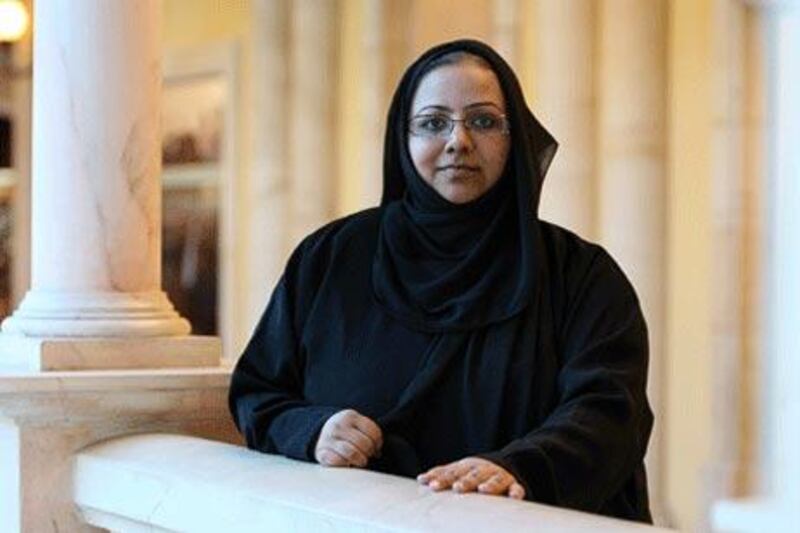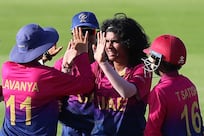Masarat Daud has always been reminded of her humble beginnings. Growing up, she was told that her father used to study by street light because there was no electricity at home, borrowing books he couldn't afford to buy. Her mother, upon arriving in Dubai with four children, was unable to afford milk, and so fed Daud tea instead. These are the stories that the 26-year-old Dubai-based Rajasthan native says taught her to value education as a vehicle of empowerment and social change. "We had a chance and left our villages and towns and came to the UAE for a good life," she says. "But it was because my father believed in education."
Interested in social justice from a young age, Daud had believed that she would one day return to Rajasthan and build a school there. "I thought I would be doing social work when I was in my forties or something," she says jovially, her cherubic face lighting with laughter. "But the truth is - I hated my office job and decided I wanted to do something to feel better about myself." And so the 8 Day Academy was born. It's a week-long seminar that trains educators and students in the rural parts of Rajasthan on skills varying from public speaking to self-awareness to computer skills.
"The idea is to enrich the village life and have people stay there. All the good people have gone and that's why these towns have suffered. What have we done? We've just given money back. So they've built great houses, but there's no infrastructure, no hospitals, no schooling." Daud's first academy was last February, when she taught rural schoolchildren the art of public speaking. Training 30 uncontrollable kids was no walk in the park, Daud says, but the transformation in eight days was remarkable. "One girl cried and cried at the beginning; I couldn't even get her to speak on stage. And then on day eight she is standing in front of a roomful of people, talking and smiling and really engaging. It was remarkable."
Speaking, smiling, self-awareness, and self-identity seem like basic aptitudes any human should easily acquire. But Daud says the education system in India's rural parts can leave students and teachers paralysed. "After the last academy, I had teachers as young as 17 come to me and say that they felt something inside them awaken and they felt they could be students again - because at the age of 15 you're made to feel that this is it. You're a teacher now. You're a grown-up. You will do this job for the rest of your life. And as a student you're taught: sit down, shut up, don't ask questions."
The sense of stagnation, she says, isn't restricted by age or gender. One of the more poignant lessons Daud learnt from the first academy was that poverty of mind affected the old and the young, and men as well as women. She tells the story of a 23-year-old man from a neighbouring village who attended her first workshop. "He had escaped from his village after some family members tried to kill him over a land dispute, and ever since he has been struggling to earn a living for his family as the only son," Daud says. "When he attended the academy, he told me he was on the verge of suicide because he didn't feel that life had given him anything. By the end of the academy, he told me: 'If I can change so much in a week, I'm excited to see how I can change even more.' All of a sudden, this guy has a purpose in life. He can be happy. He can do something different." That was when Daud realised the potential of what she could give back.
Two academies will be held in mid-January, followed by a Tedx event, the licensed subsidiary of TED (Technology, Entertainment, Design) - a nonprofit conference that takes place around the globe. Started in Silicon Valley, California, the 20-year-old initiative thinks of itself as a viral medium for spreading innovative ideas through conference talks it then posts online, available free of charge to a global audience. Past speakers have included Bill Clinton, Karen Armstrong, Al Gore and Bill Gates, who infamously unleashed a swarm of mosquitos on to his audience to highlight the problem of malaria in Africa.
Having spoken at TedxDubai this past October, Daud insists that it is necessary to bring the progressive ethos of the conference to her home province. "It will be the first TedxRajasthan," she says. "I thought: you opened their minds, now let them see people who have actually used it. And these speakers are from the region, from Rajasthan, and so they're going to going to connect with them on different levels."
Daud hopes that within a year she can take the 8 Day Academy global. Modelling the programme on TEDx's mobility, she hopes it can thrive in other parts of the world such as Africa and Latin America. Any rural community, she believes, has the potential to innovate and bring about change because the people at the bottom of the pyramid "know what needs to be done". "All these people are capable of doing a lot of really great things. But it's just that they haven't been given the opportunity; no one ever spoke to them properly and said: 'You can do it.'"





